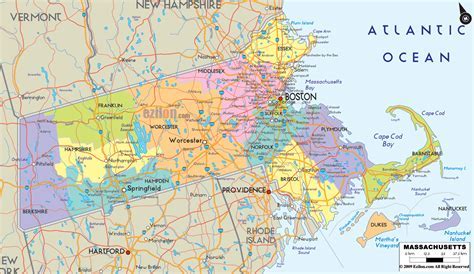Judge Angel Kelley (also known as Angel Kelley Brown) is a state judge in Massachusetts with a varied resume, including serving as a federal prosecutor, a clinical instructor, and a legal aid attorney. Kelley now seeks to add an additional credential: federal judge.
Background
Kelley was born in New Rochelle, NY in 1967. Kelley received a B.A. from Colgate University in 1989, and then obtained a J.D. from the Georgetown University Law Center in 1992.
After graduation, Kelley worked for the Juvenile Rights Division with the Legal Aid Society in Brooklyn for four years before being hired by the Litigation Division of the NY & NJ Port Authority.
In 2005, Kelley moved to Massachusetts to become a Clinical Instructor at Harvard Law School. After two years there, and another two years with the US. Attorney’s Office for the District of Massachusetts.
In 2009, Kelley was nominated by Governor Deval Patrick to be a Judge on the Massachusetts District Court. In 2013, Patrick elevated Kelley to the Massachusetts Superior Court, where she currently serves.
History of the Seat
Kelley has been nominated for a seat on the U.S. District Court for the District of Massachusetts opened by Judge Douglas Woodlock’s move to senior status on June 1, 2015. On July 30, 2015, President Obama nominated Boston attorney Inga Bernstein to fill the vacancy. Despite being overwhelmingly voted out of the Republican-controlled Senate Judiciary Committee, Bernstein was blocked from a final vote before the end of the Obama Administration. Due to an inability to reach an agreement on candidates with Massachusetts Senators, the Trump Administration never extended a nominee to fill the vacancy. Kelley was nominated to the seat on May 12, 2021.
Legal Career
Kelley has held a number of positions throughout her career, including working as a clinical instructor, as a federal prosecutor, and as a legal aid attorney. The most significant portion of Kelley’s career, however, was spent as an attorney on behalf of the Port Authority of New York and New Jersey, an interstate compact that regulates transportation between the states.
Among the notable matters she handled for the Port Authority, Kelley defended the decision to dismiss Christopher Mapp, a Port Authority employee, based on alleged false statements he made in seeking Red Cross Aid after being traumatized after witnessing the 9/11 terrorist attacks. Mapp v. Burnham, 23 A.D.3d 37 (N.Y. App. Div. 2005). An appellate court reversed the dismissal, noting that Mr. Mapp was entitled to the aid he applied for and any false statement he made (he had allegedly stated that he was unemployed) had no materiality to his application. See id.
Jurisprudence
Kelley has served as a state court judge in Massachusetts since her appointment in 2009. For the first three years of her career, Kelley served on the Brockton District Court, which holds jurisdiction over felonies up to five years, misdemeanors, ordinance violations, and all civil matters involving less than $25,000 in damages. Since 2013, Kelley has served on the Massachusetts Superior Court, a trial court with jurisdiction over civil offenses with more than $50,000 at stake and jurisdiction over all felony criminal matters.
Among the notable matters that she heard as a judge, Kelley denied a motion for a new trial made by Clifton Caldwell, who argued that, at his original trial, the prosecution had failed to disclose a key witness’ long history as a police informant who had received lenient sentences in exchange for cooperation in other cases. See Commonwealth v. Caldwell, SJC-12907, May 6, 2021 (Mass. 2021). Kelley denied the motion by noting that there was insufficient evidence connecting the witness’ testimony in the defendant’s case with preferential treatment he received in other cases. See id. However, the Massachusetts Supreme Judicial Court reversed, holding that the informaiton not disclosed was exculpatory and the failure to disclose prejudiced the defendant, and, as such, that a new trial was needed.
In addition to her work in the courtroom, Kelley has been active on social justice issues, including trainings encouraging judges and court staff to stand up against conscious and unconscious bias. See Ralph D. Gants, Voice of the Judiciary: Creating Courts Where All Are Truly Equal, 65 B.B.J. 4 (Winter 2021). She also participated in the Committee charged with creating a new Massachusetts Code of Judicial Conduct, and has spoken in forums discussing racism in the court system, including experiences that she has faced as a judge of color. See Yawu Miller, Officials Take On Discrimination in Court System, Bay State Banner, Mar. 4, 2021.
Overall Assessment
With two decades of legal experience under her belt, Kelley can certainly argue that she is academically qualified for the federal bench. However, she may draw opposition (or at least questioning) based on her active anti-bias work in the judiciary. While Kelley is likely to draw conservative opposition, she is nonetheless favored for confirmation.
